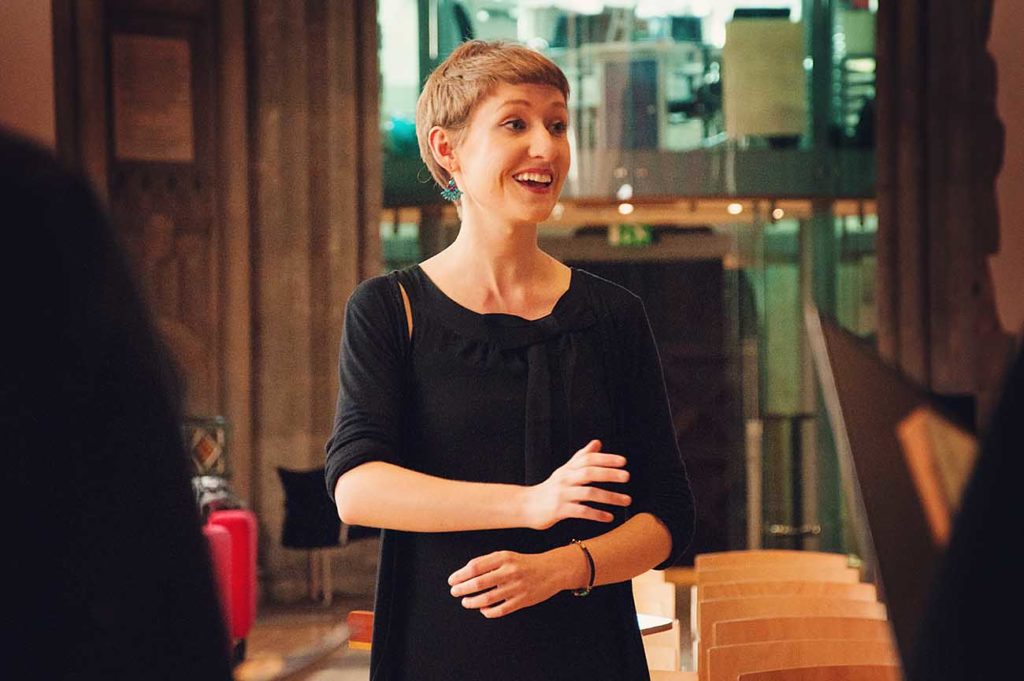
IT was a good idea to schedule two Baroque Magnificats side by side in a single Christmas programme. What was arguably less sensible was to sing them in reverse chronological order.
The large choir was joined by the chamber choir The 24, bringing its numbers up to 250, all guest-conducted by Sarah Latto.
The history of Bach’s Magnificat is not altogether simple. This Christmas marks the 300th anniversary of the premiere of his first Magnificat, which was in E flat major. Over the following three years, he revised it, cutting out its four Christmas texts so that it could be used throughout the year and transposing it into the key of D major.
That is the version normally heard. What was given here was indeed “inspired by the early version” but in the later key. So we heard it with the Christmas bonuses.
It spearheaded the evening. In the opening chorus, the Baroque Ensemble, numbering some two dozen, was immediately right on its toes. The choir took longer to find focus. In the first interpolation, ‘Vom Himmel Hoch’ (From Heaven Above), the chorale melody in the sopranos needed greater prominence.
But there was a crisp attack into ‘Omnes generationes’ and thereafter the choir was fully focused: the ending of ‘Fecit Potentiam’ was superbly triumphal and the final Gloria equally imposing.
It was entirely understandable that soloists from within the choir (all members of The 24) were used, exactly as Bach would have done. But in this dry acoustic, which is so unreceptive to solo voices, it worked only intermittently.
Only one, the soprano Molly O’Toole, had the consistent resonance to surmount this difficulty; the baritone Will Parsons ran her a close second. Both, incidentally, sang their arias by heart. All of the others, equally youthful, were never less than competent, but lacked the projection required.
The orchestra contributed strong rhythmic backing, with first-class solo work from flutes and oboes. The portative organ, however, was underpowered against these forces and the harpsichord virtually inaudible.
The ‘other’ Magnificat was by the little-known Milanese nun Chiara Margarita Cozzolani. Written in the year of Bach’s birth, 1650, it inevitably suffered by being heard in the wake of his work rather than beforehand. But it proved an engaging work, for double choir, full of imaginative metrical changes closely linked to the text, even if its harmonic palette was limited. The 24 relished its antiphonal effects.
A Sinfonia pastorale – defined as for the Christmas season by its closing movement – was led from the violin with considerable panache by Asuka Sumi, one of the Baroque Ensemble’s co-directors (the other is cellist Rachel Gray, also present here).
Thereafter we enjoyed three Michael Praetorius settings of Christmas carols, with orchestral accompaniment. Finally, Gruber’s Silent Night, to an American translation, invited audience participation.
It made for a second half that was rather less exciting than Bach’s Magnificat had been. Nevertheless, Latto had conducted decisively, mouthing all the words as choral conductors are wont to do, but achieving excellent results and infusing the choir with enthusiasm.
Review by Martin Dreyer
